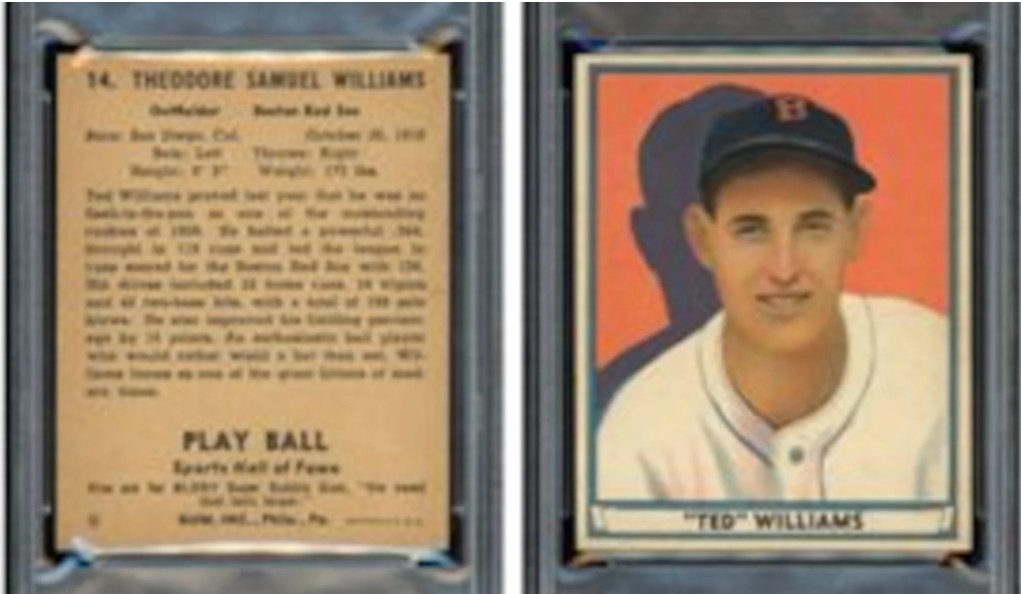In an unexpected twist of fate that could shake the hotel industry’s approach to safeguarding guests' possessions, Memory Lane Inc., a prominent Californian sports auction house, has filed a $2 million lawsuit against Best Western. This legal battle follows the mysterious disappearance of a treasure trove of vintage baseball cards, which went missing from the hotel’s Strongsville, Ohio location in 2024.
In a plotline worthy of a gripping detective novel, the hefty shipment at the center of this storm was nothing short of a sports memorabilia dream. It included 54 coveted cards featuring legends from baseball's hall of fame, highlighted by two relics that stand as historical witnesses to the evolution of the beloved sport: a 1909 Ramly Walter Johnson and a 1941 Ted Williams, collectively valued at a staggering $90,000.
The haunting moment of truth struck when FedEx confirmed the delivery of this precious package to the unsuspecting Best Western Plus. Alas, when an eager Memory Lane employee arrived to claim the storied cargo, it had seemingly vanished into thin air, a cruel Houdini act at its finest.
As investigators peeled back the layers of this modern-day whodunit, a sordid tale of betrayal emerged. The villain of our story? An unscrupulous hotel staff member named Jacob Paxton. In a classic showdown of temptation versus duty, Paxton had pilfered the invaluable stash, later passing it to his shady partner-in-crime, Jason Bowling. And although the dynamic duo's caper eventually fell apart — with authorities finding almost all of the lost loot — the headlining Walter Johnson and Ted Williams cards remained unaccounted for. Justice, a concept so integral to baseball’s sense of fairness and sportsmanship, wasn’t wholly served. Paxton found himself facing the consequences, sentenced to a four-to-six-year prison sojourn, while Bowling was given a pass with community supervision.
The moral implications of this oversight extend beyond just finding and punishing the culprits. For Memory Lane, where every card is not just a collectible but a slice of sports history, the fallout was profound. Trust — the commodity that underpins their trade — took a hit, and in a market where reputation is more valuable than any card, that’s a wound that heals slowly.
Fast-forward to July 2025, and Memory Lane decided to swing for the fences, filing a civil lawsuit against not just the beleaguered hotel, but Best Western International and its local franchise operators. The lawsuit levels a damning accusation: that the hotel chain, with its vast resources and global footprint, was reckless in hiring and oversight practices, ultimately enabling a heist that could easily have been avoided. Best Western, a titan with deep pockets and considerable clout, now stands at the precipice of a potential precedent-setting judgment. What measures will they be forced to adopt to prevent similar debacles? Will the outcome reshape the responsibilities hotels undertake when safeguarding high-value items?
As it turns out, thievery within the realm of sports collectibles isn’t solely a hotel hang-up. The National Sports Collectors Convention — a veritable Valhalla for collectors — has been plagued by a string of light-fingered miscreants who have brazenly targeted cards right off the show floor. Iconic relics, such as the elusive 1951 Bowman Mickey Mantle rookie and a revered 1986 Fleer Michael Jordan rookie, fell prey to the nefarious schemes of thieves even amidst heightened security measures in 2025.
With the value of sports cards rocketing into the stratosphere — a phenomenon often breathlessly chronicled by collectors and aficionados — the stakes have never been higher. Dealers and collectors alike are increasingly adopting a fortress mentality, arming themselves with robust security protocols ranging from high-tech cameras and rigorous insurance policies to virtually impregnable display cases. These stalwarts of the hobby recognize that simplistic safeguards won't suffice against the increasingly sophisticated threats looming within the industry.
While the Best Western lawsuit may set a new bar for responsibility and care in hotel operations, it has also shone a spotlight on a deeper underlying truth for collectors: in this booming market where cardboard pieces are revered akin to fine art and glittering jewels, they require comparable layers of security and care. Each card reflects a narrative intertwined with sport’s grand legacy, deserving of diligence befitting its monumental worth. As the card collecting landscape continues to evolve, only time will tell whether the institutions surrounding the hobby evolve with it, but for now, one thing is clear — the cards are in play.
1941 Ted Williams


Comments